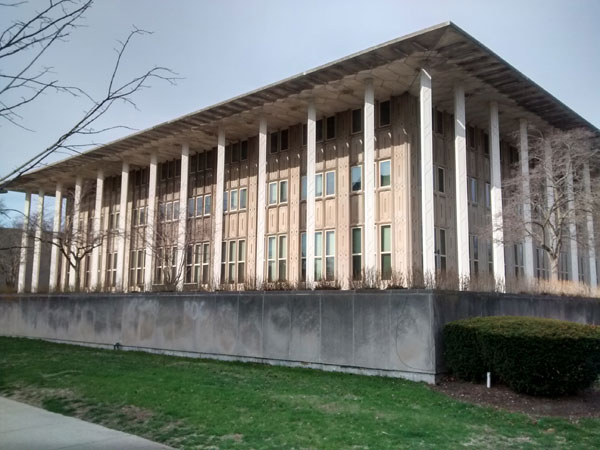University of Chicago unveils new climate and sustainability major to meet workforce demands

[Image of University of Chicago, Credit of Wikimedia]
In February 2025, the University of Chicago announced the launch of a new undergraduate major in Climate and Sustainable Growth, set to begin in August 2025, highlighting a growing trend among leading universities to expand sustainability education in response to global challenges.
The new program builds on the university’s establishment of the Institute for Climate and Sustainable Growth in October 2024, a center dedicated to advancing interdisciplinary research and education in climate science, sustainable technology, and environmental policy.
Under the leadership of economics professor Michael Greenstone, the institute plans to hire 20 new faculty members over the next five years to support its mission.
Across the U.S. higher education institutions across the United States are similarly enhancing their sustainability curricula to better prepare students for emerging careers.
According to the Association for the Advancement of Sustainability in Higher Education (AASHE), universities are increasingly integrating sustainability into their academic offerings to meet a growing workforce demand for professionals skilled in sustainable practices across industries such as energy, finance, and technology.
AASHE emphasizes that interdisciplinary thinking, innovation, and adaptability are now essential competencies for future leaders in sustainability-related fields.
The rapid expansion of the green economy is further fueling this educational shift.
The U.S. Department of Energy reported that in 2023 alone, the clean energy sector added approximately 149,000 new jobs, growing at more than twice the national average employment rate.
Sectors such as energy efficiency, renewable power generation, electric vehicles, and battery storage are seeing particularly strong demand for skilled workers.
As the clean energy transition accelerates, universities are under increasing pressure to produce graduates who are ready to fill these high-growth roles.
Moreover, a 2020 report from the National Academies of Sciences, Engineering, and Medicine further advocates for a redesign of sustainability education by fostering interdisciplinarity, offering experiential learning opportunities, and incorporating diversity, equity, and inclusion principles.
The report recommends that institutions develop specialized degrees and programs that equip students with core knowledge in sustainability science, ethics and justice, business management, data analysis, and Indigenous knowledge systems, enabling them to address complex environmental, economic, and societal challenges.
The University of Chicago’s new major embodies these priorities.
Students will be able to engage in coursework across natural sciences, social sciences, technology, and finance, while also participating in real-world sustainability projects in collaboration with external organizations worldwide.
This approach aims to produce graduates who are not only knowledgeable but also capable of applying sustainability principles to practical problems.
Other leading universities are similarly expanding their sustainability efforts.
Stanford University launched the Doerr School of Sustainability in September 2022, its first new school in 75 years.
Columbia University established the Columbia Climate School in 2020 to foster interdisciplinary study of climate change and its societal impacts.
The Scripps Institution of Oceanography at the University of California, San Diego, has enhanced its focus on climate and marine science research.
Arizona State University set an early precedent by founding the School of Sustainability in 2006, and the University of Utah recently formed the School of Environment, Society, and Sustainability in 2024.
As global risks related to climate change intensify, universities are increasingly recognizing their responsibility in training the next generation of leaders who will guide sustainable transformation across industries and societies.

- Sungyoon Lee / Grade 10
- Dwight School Seoul

![THE HERALD STUDENT REPORTERS [US]](/assets/images/logo_student_us.png)
![THE HERALD STUDENT REPORTERS [Canada]](/assets/images/logo_student_ca.png)
